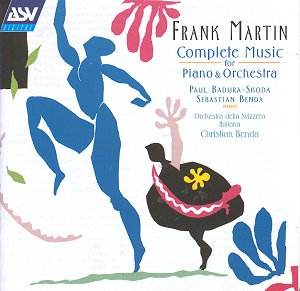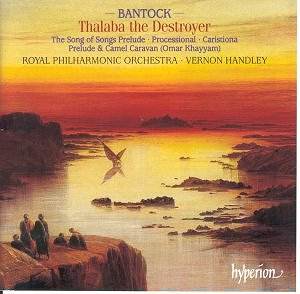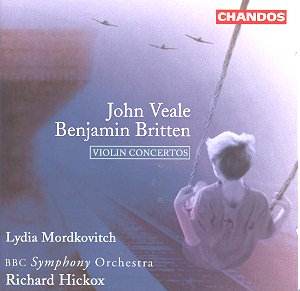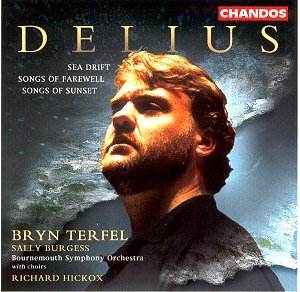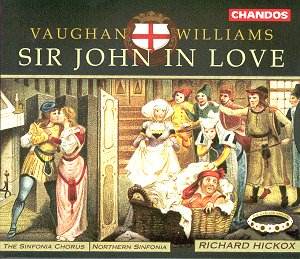 Composer: Ralph Vaughan Williams (1872-1958)
Composer: Ralph Vaughan Williams (1872-1958)
Work: Sir John in Love (1928)
Performers: Donald Maxwell (baritone, Sir John Falstaff), Susan Gritton (soprano, Anne Page), Sarah Connolly (mezzo-soprano, Mrs. Ford), Stephen Varcoe (bass, Sir Hugh Evans), Mark Padmore (tenor, Fenton), Adrian Thompson (tenor, Slender), Anne-Marie Owens (mezzo-soprano, Mistress Quickly), Laura Claycomb (soprano, Mrs. Page), Matthew Best (bass, Ford)
Orchestra/Chorus: Northern Sinfonia Orchestra and Chorus
Conductor: Richard Hickox
Recorded: 2000
Label: Chandos CHAN 9928 (2 CDs, 138:39)
Ralph Vaughan Williams’s Sir John in Love emerges as an intriguing operatic tapestry, weaving together Shakespearean whimsy with English folk tradition, and in this splendid 2000 recording led by Richard Hickox, we are granted a vivid glimpse into its theatrical and musical potential. The composer’s adaptation of Shakespeare’s The Merry Wives of Windsor into a lyrical operatic form showcases not only his gift for melodic invention but also his nuanced understanding of character and comedy within the operatic framework.
Written between 1913 and 1928, Sir John in Love represents a significant moment in Vaughan Williams’s creative evolution, a work imbued with the pastoral sensibility that characterizes much of his oeuvre. Yet, it is uniquely distinct in its dramatic context, positioning the rotund and loveable Sir John Falstaff not merely as a comic figure but as a character imbued with dignity and depth. This nuanced portrayal is evident in Donald Maxwell’s performance, where his rich baritone offers a blend of gravitas and humor, capturing the essence of Falstaff’s romantic escapades without devolving into mere buffoonery.
Hickox’s direction allows the Northern Sinfonia to shine, the orchestra deftly navigating Vaughan Williams’s intricate textures. The orchestration is both lush and transparent, with moments of striking beauty—particularly in the orchestral interludes that underscore the comic action with a blend of warmth and poignancy. The use of English folk tunes, including the beloved “Greensleeves” sung with eloquence by Sarah Connolly’s Mrs. Ford, serves to anchor the work in a particularly English idiom, enhancing its emotional resonance.
The characterizations within this recording are commendable, with the ensemble delivering performances that are both musically and dramatically effective. Susan Gritton’s clear and radiant soprano as Anne Page is a standout, her arias suffused with youthful exuberance, while Mark Padmore’s portrayal of Fenton is marked by an ardent lyricism that is both tender and compelling. Together, their duets shimmer with a romantic idealism that is quintessentially Vaughan Williams, echoing the thematic currents found in his Fifth Symphony and Tallis Fantasia.
However, it is worth noting that Vaughan Williams’s penchant for expansive lyrical passages can lead to moments of narrative stagnation. Certain sections, particularly in the latter acts, may feel elongated, prompting a reflection on the balance between musical development and dramatic urgency. Nevertheless, the overall shape of the work, under Hickox’s careful stewardship, maintains a coherence that sustains listener engagement.
In the context of historical recordings, this Chandos release can be favorably compared to the EMI recording from the 1970s under Meredith Davies. While Davies’s interpretation offers a more traditional approach that aligns closely with mid-20th-century operatic practices, Hickox’s reading feels more contemporary, utilizing the strengths of a cast that brings a freshness and vitality to the roles. This recording benefits from modern engineering techniques, capturing the nuance of the orchestration and the clarity of the vocal lines with a vividness that enhances the operatic experience.
In conclusion, Sir John in Love is a testament to Vaughan Williams’s ability to blend lyrical beauty with rich character studies, and this recording serves as a compelling interpretation of his vision. With a skillful cast and Hickox’s insightful direction, this performance not only revitalizes an often-overlooked work but also reaffirms Vaughan Williams’s position in the pantheon of English opera. As listeners, we are treated to a delightful exploration of love, folly, and the human condition, rendered with both sophistication and charm.
